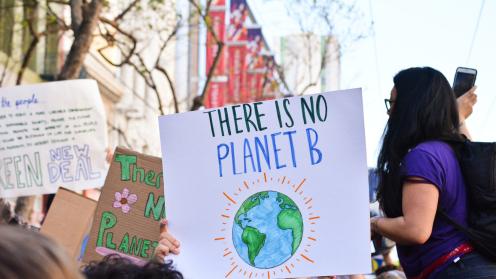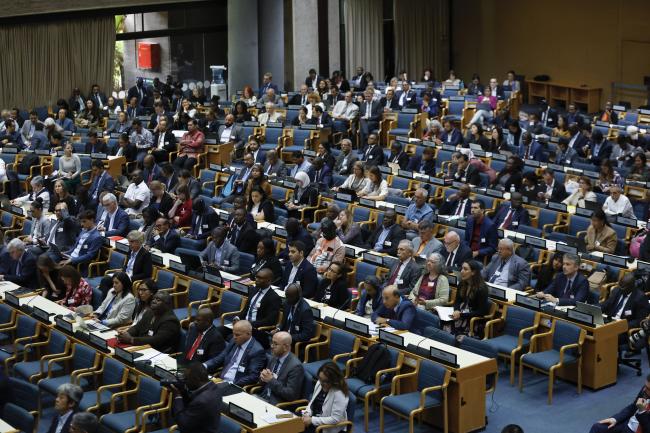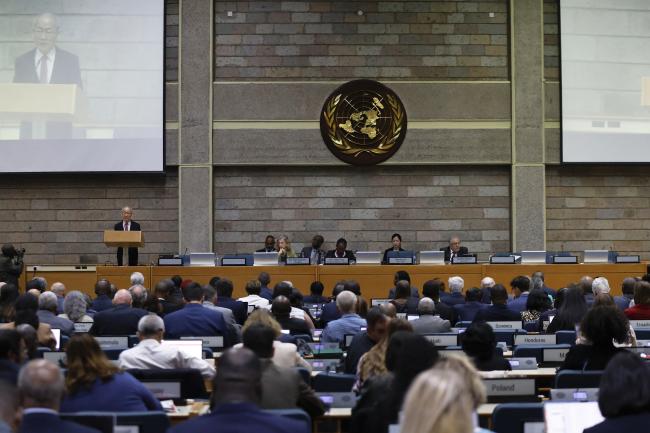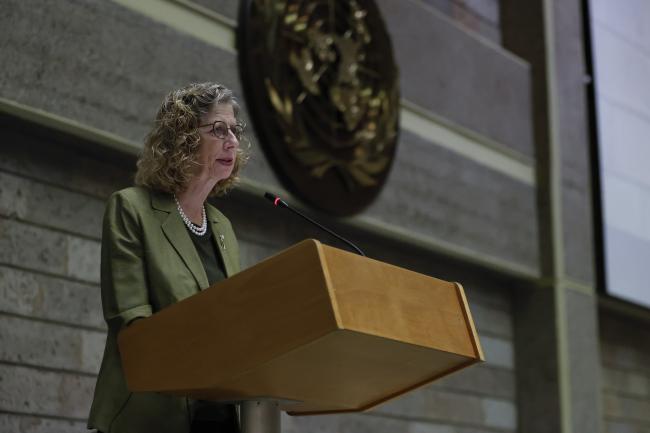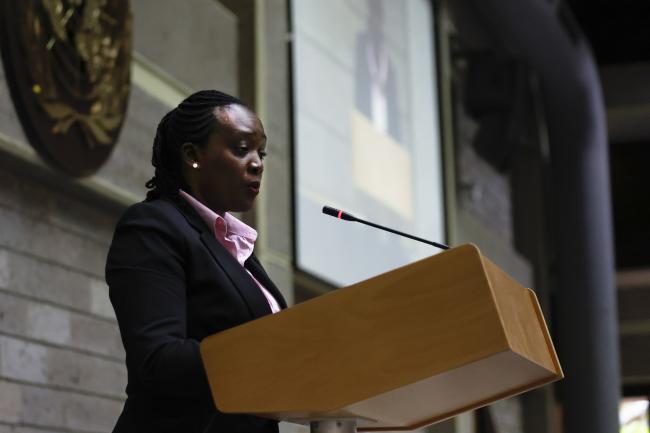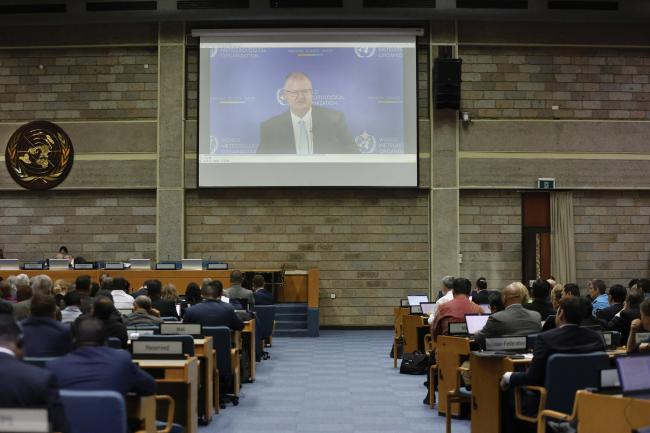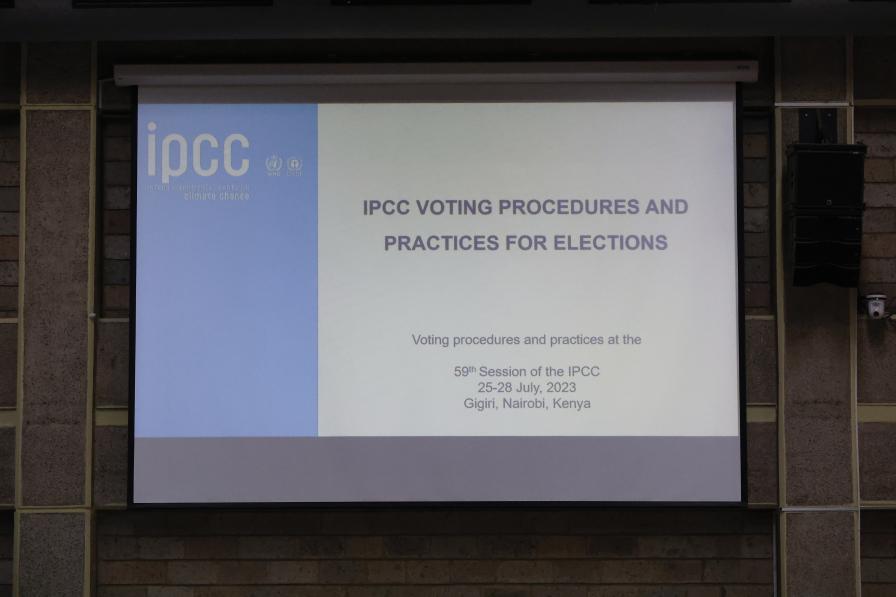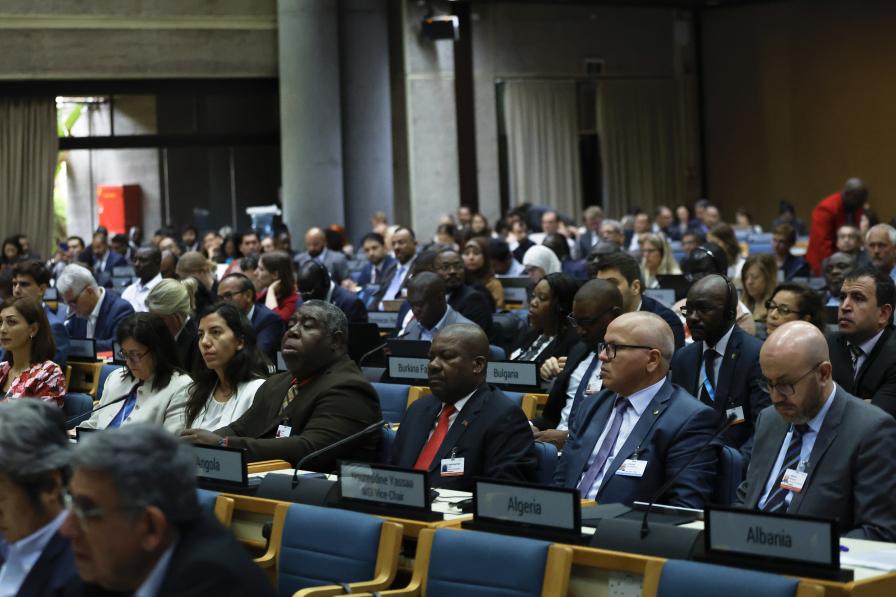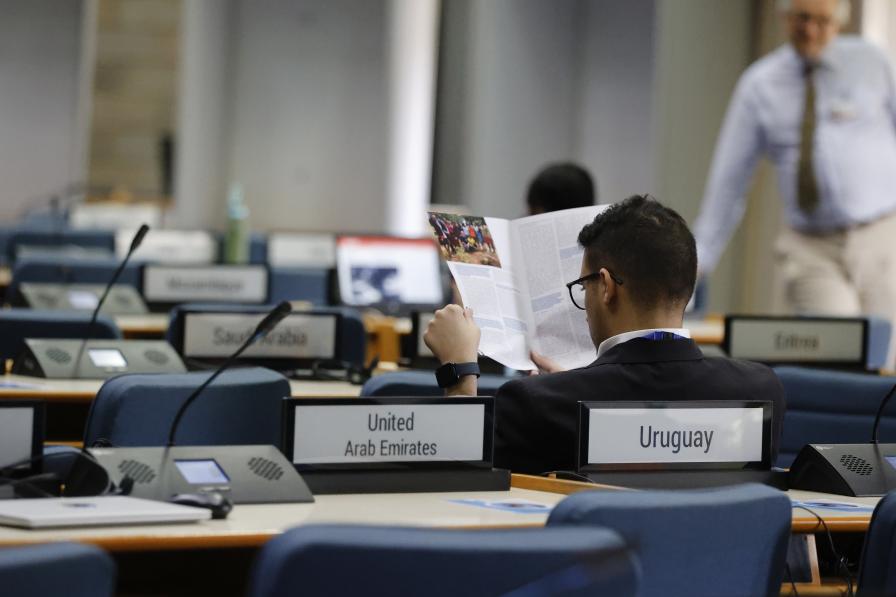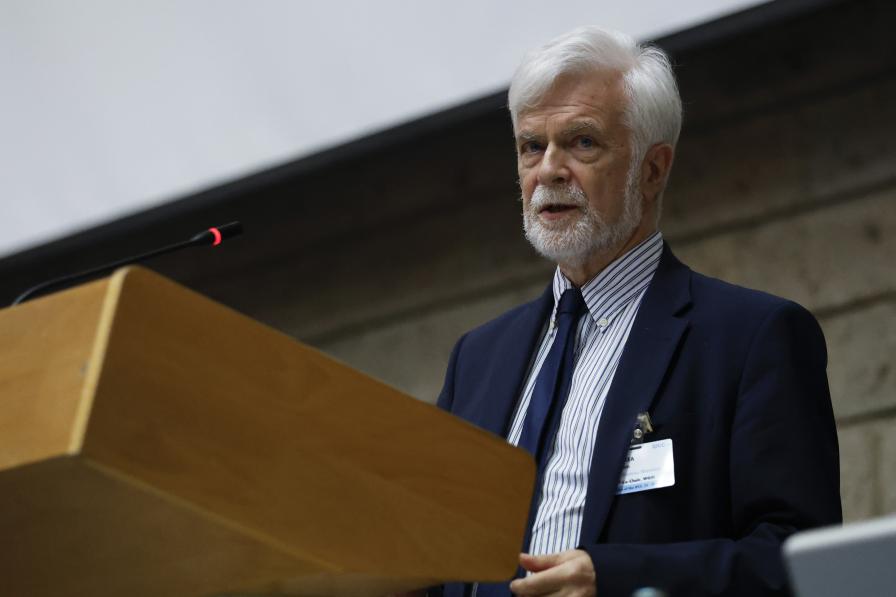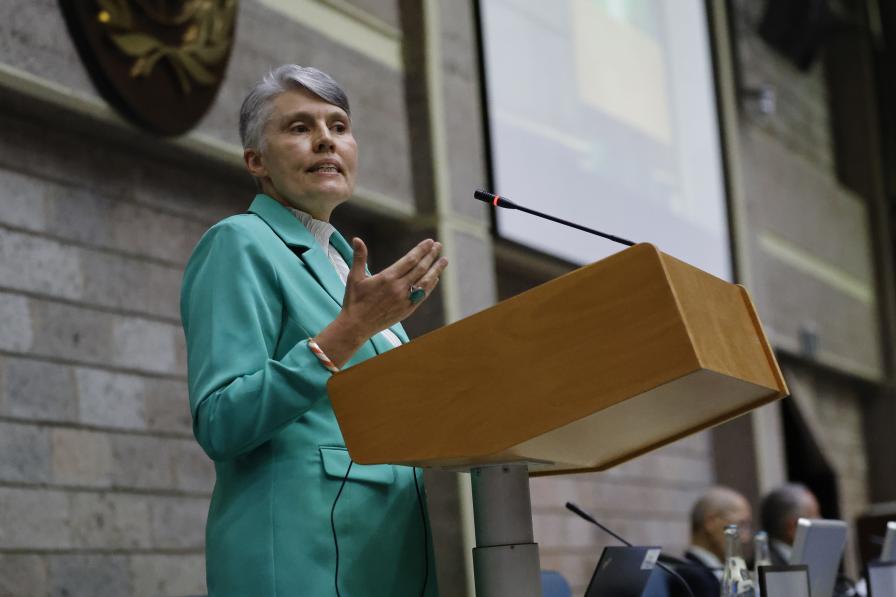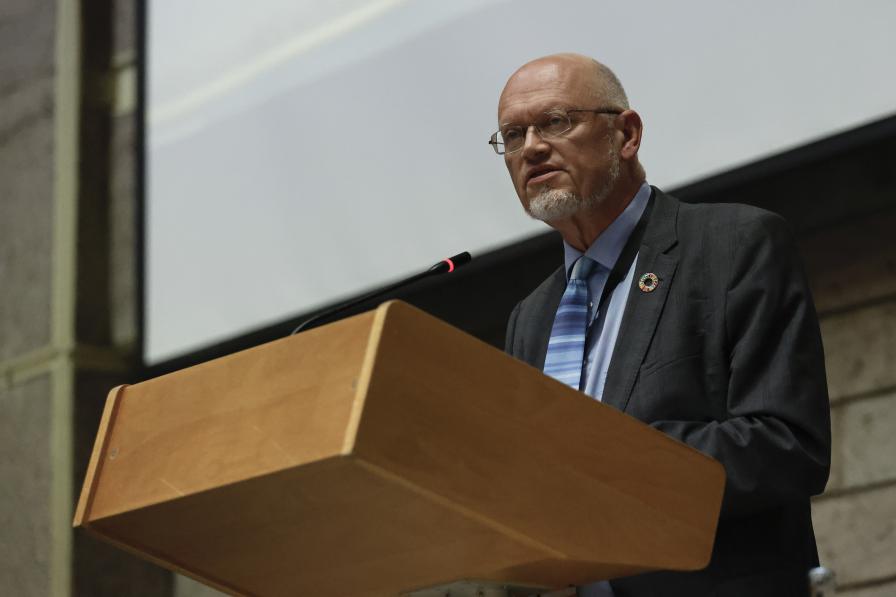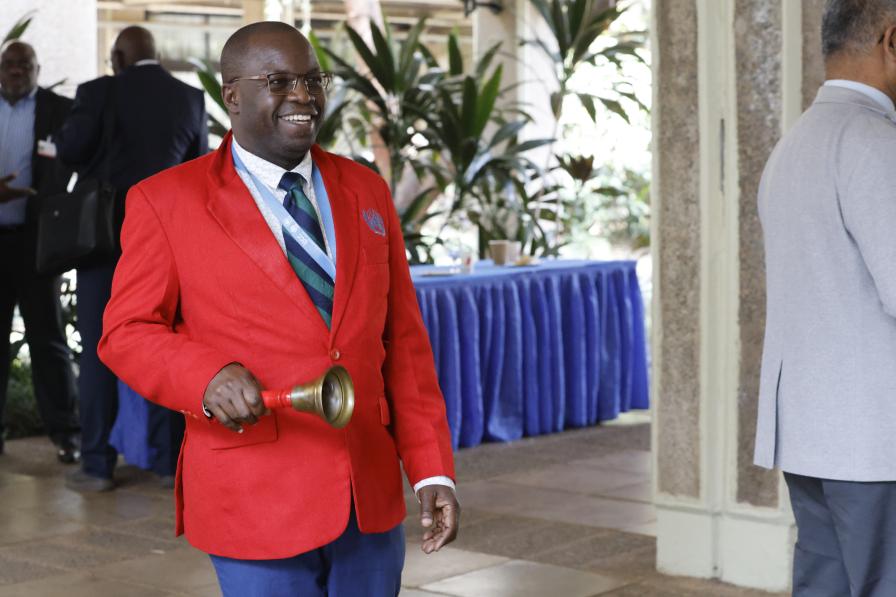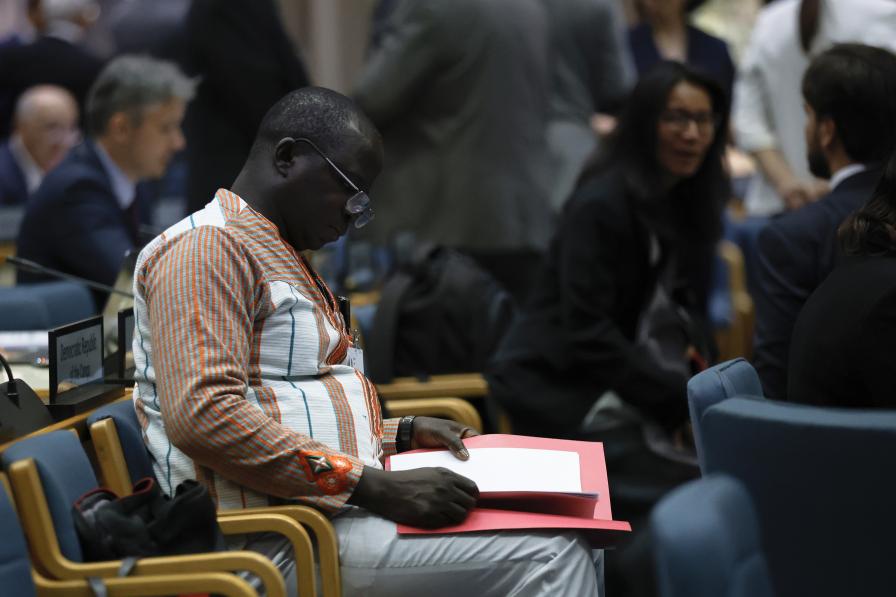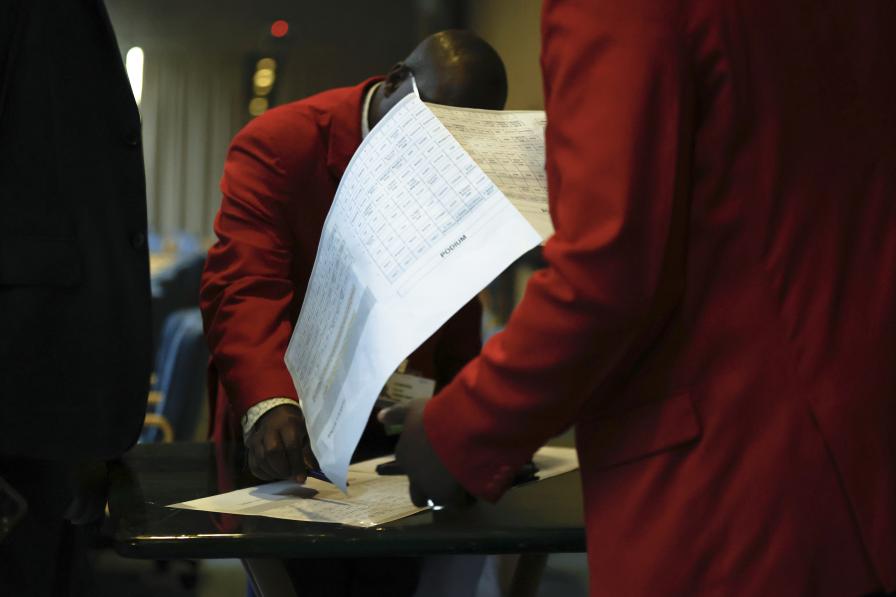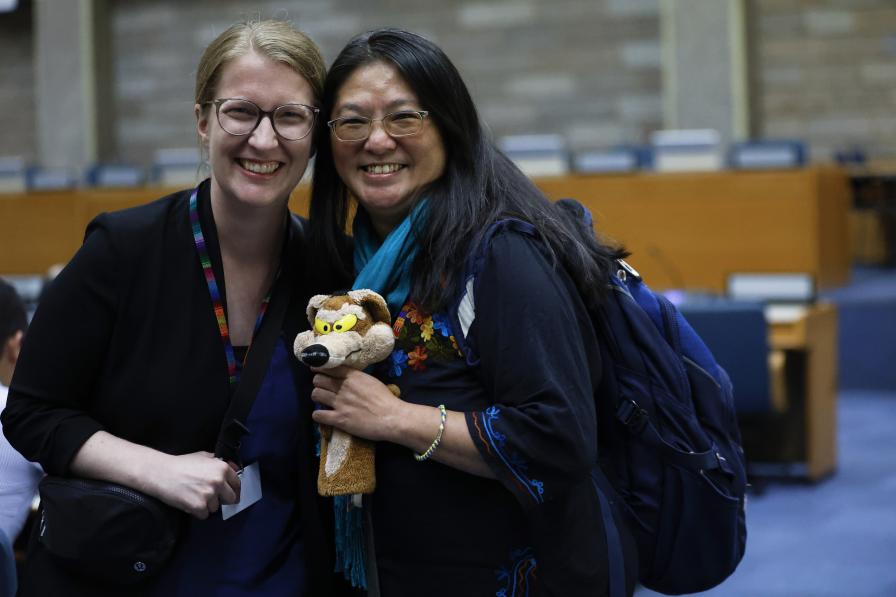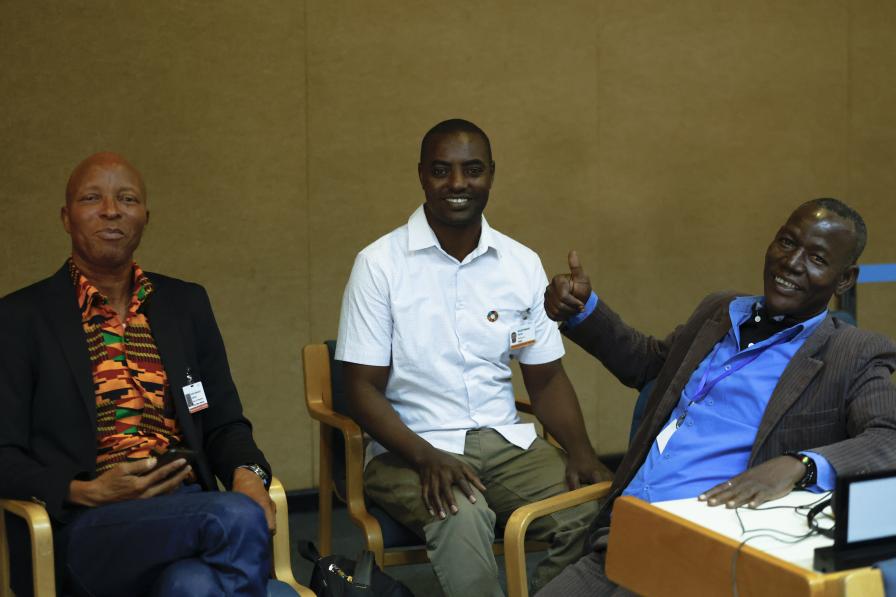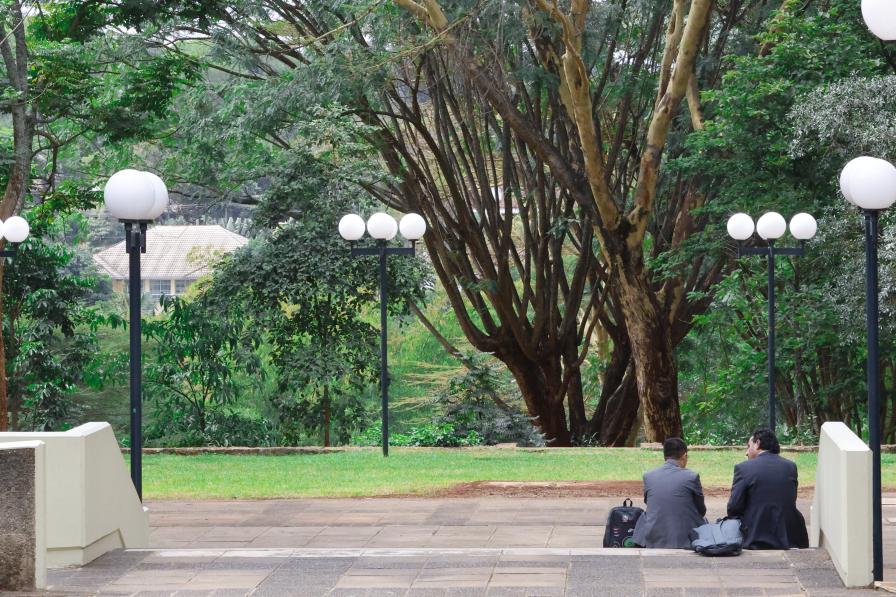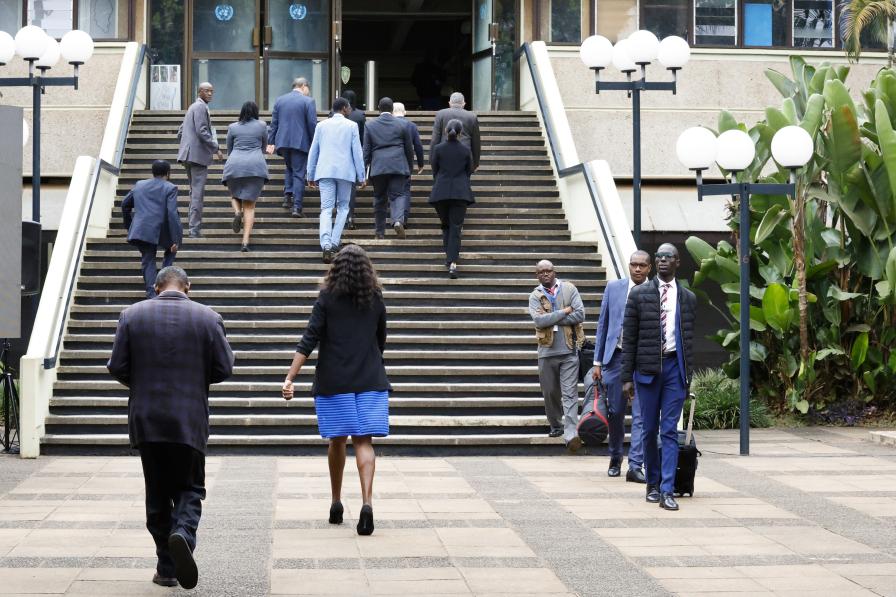As much of the world contends with the devastation of recording-breaking heatwaves, wildfires, and floods, delegates to the 59th session of the Intergovernmental Panel on Climate Change (IPCC) gathered in Nairobi on Tuesday to take the first steps of the Panel’s Seventh Assessment Cycle. During this crucial meeting delegates will elect a new Bureau, including the IPCC Chair, IPCC Vice-Chairs, and Working Group Co-Chairs, and a Bureau for the Task Force on Greenhouse Gas Inventories.
Outgoing IPCC Chair Hoesung Lee welcomed delegates and highlighted the achievements of the Sixth Assessment Cycle, including the IPCC’s receipt of the Gulbenkian Prize for Humanity in 2022. He expressed confidence that the new Bureau will “raise the bar” for the IPCC’s work even higher.
In opening remarks, several dignitaries noted the dire impacts of climate change that the world is currently experiencing, highlighting the IPCC’s importance in guiding the world to a more sustainable future. United Nations Environment Programme Executive Director Inger Andersen underscored that the world the IPCC has repeatedly warned of is now upon us, with record high temperatures every day, droughts, dying oceans, and ferocious infrastructure-destroying storms, while hopes of staying below 1.5℃ global warming are fading fast. She encouraged the IPCC to keep sounding the alarm but also to give hope, emphasizing that we can and must change.
Soipan Tuya, Cabinet Secretary of Kenya’s Ministry of Environment, Climate Change and Forestry, welcomed delegates to Nairobi and congratulated the outgoing Bureau for its exemplary service in spite of the challenges posed by the pandemic. Noting that East Africa has less than ten years before the glaciers of Mount Kilimanjaro and Mount Kenya are lost, she lamented that only 11 percent of the Sixth Assessment Report authors were from Africa, despite the continent’s vulnerability to climate change impacts, and called for mitigation and adaptation options based on needs.
Paul Egerton, World Meteorological Organization (WMO), speaking via pre-recorded video on behalf of WMO Secretary General Petteri Taalas, emphasized that we are experiencing extreme weather events and climate impacts around the world and highlighted that the WMO’s highest priority is to establish early warning systems. Underscoring the need for climate justice, he said that the IPCC’s work is vital for the planet and humankind and is key to ensuring that we stay on a sustainable track for the future.
Delegates then turned to the business of the meeting, reviewing the procedures that will guide the elections and engaging in regional consultations.
To receive free coverage of global environmental events delivered to your inbox, subscribe to the ENB Update newsletter.
All ENB photos are free to use with attribution. For the 59th Session of the IPCC (IPCC-59), please use: Photo by IISD/ENB | Anastasia Rodopoulou
